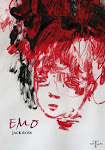Where am I? Cuttings:

Contents
Title
Acknowledgements
Letter
Table of Synapses
A - Amnesia
Atlantis (Etymology)
Atlantis (Location)
B - Baring-Gould, Rev. Sabine
Baxter, James K.
Bianca
C - Cannibal Worms
Cicero, Marcus Tullius
Critias
D - Daedalus
Derren Brown Mind Control
Doctor Who
E - End-times (Arghati)
End-times (Prophecies of 9/11)
Enoptromancy
F - Felton Mathew’s spider-web plan
Foreplay
Fotis
G - Girl in Love, A
Golden Ass, The
Guide to the Otherworld
H - Herrennium, Ad
Hy Brasil
Hysterical Dissociation
I - Imaginary Museum
Ithaka
Jardin des Supplices
K - Ka
Keeper of the Scales, The
Kronos
L - L’Atlantide
Lemuria
Lucius, La Métamorphose de
M - Martian Meteorite Found in Antarctica
Memory Theatre
Mu
N - Naacal tablets
Notice of Seizure of Goods under Customs and Excise Act 1996
Nuttall Codex
O - Odyssey, The
Oral Sex
Orichalcum
P - Panopticon
Paris Eros
Phaeacia
Q - Quarles’ Book of Emblems
Questionnaire
Quetzalcoatl
R - Radiant Child, The
Ramananda, K. B.
R.U.R.
S - Short-term Memory Impairment
Socrates & Alcibiades
Symposium
T - Talismano della Felicitá, Il
Timaeus
Time Travel
V - UFOs
Ventris, Michael
Verne, Jules
W - Waite, Arthur Edward
Werewolves
World Map
X - Xanthippe
Xerxes
Xylomancy
Y - Yama
Yates, Frances A.
Young, Edward
Z - Zener cards
Zeus & Mnemosyne
Zodiac



.jpg)




